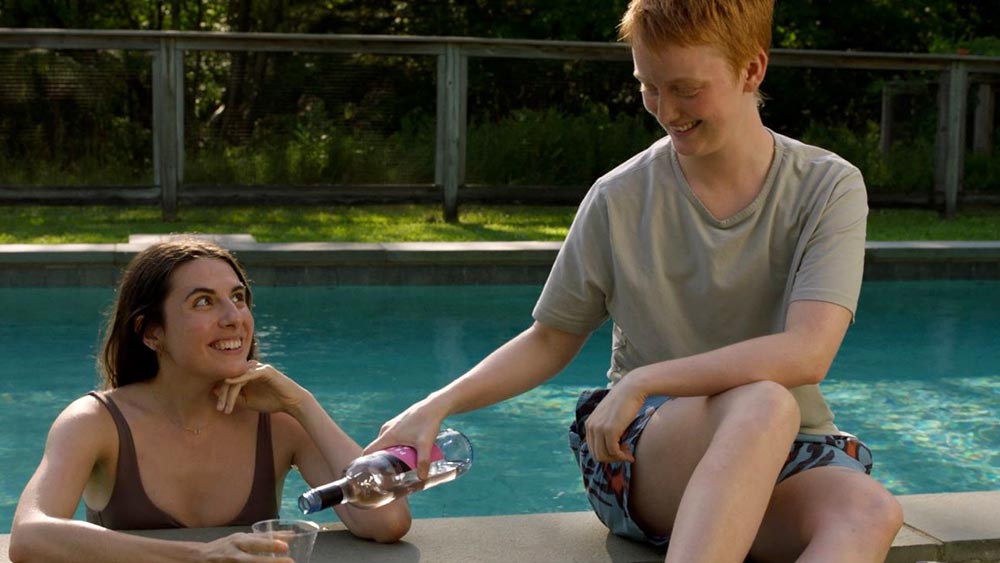“I am caught in a mirror which changes position and which reflects me wherever there is a dual structure,” writes Roland Barthes in A Lover’s Discourse. The “dual structure” here names an amorous relationship, call it love. The lovers reflect one another, projecting and perceiving images of themselves in and by the other, like two facing mirrors. Noah Schamus’s debut feature, Summer Solstice (2024), investigates what happens when the reflections we receive from longstanding loves change through time, when the returned image reflects a self we might not yet recognize, and when past and present images differ.
In the film, friendship is the dual structure that allows Schamus to take the bland platitude “it’s complicated…” to the next level. Yet, there’s nothing clichéd about Schamus’s treatment of this modality of love. Leo (Bobbi Salvör Menuez) is a trans-masc theater actor who takes an impromptu short trip to upstate New York (the perfect setting for sexy and messy things to happen) accompanied by his cis-hetero friend Eleanor (Marianne Rendón). Leo and Eleanor’s lifelong friendship has always been an intimate and intersubjective stage where they’ve rehearsed their gender identities, but their past and present collide over the course of their time upstate. Leo is in the midst of a transitional process, shedding past selves and performing new forms of embodiment, being, and feeling in dynamic matrices of sociality; Eleanor is stuck in time, stuck with the same old script for herself and Leo, stuck with faded images that no longer exist. Not to mention: they must both deal with the phantasmagorias of old desires and the ambivalence that stems from the asymmetrical, non-romantic love they have had for each other since college.
Shamus’s economic audiovisual language lets a humorous narrative study on the perpetual mutability of relationships unfold seamlessly, foregrounding the value of tolerance, patience, and self-acceptance—eroding values in these icy times of cancel culture, when love is increasingly susceptible to commodification and discard, and when it’s easier to cut a bond and replace people than to work through messy conflict. Summer Solstice rightly shows us that, if relationships are intersubjective life experiments whereby people practice becoming who they are yet to be, then relationships require room for asynchrony between the selves inhabited within each participant in a relationship. There must be room for error and adjustment. Why’s that? Because people fuck up, say and do problematic things, fail to understand one another, and then fuck up again.
Summer Solstice opens at IFC Center on June 14. The director and Marianne Rendón will be in attendance for a series of post-screening Q&As.



